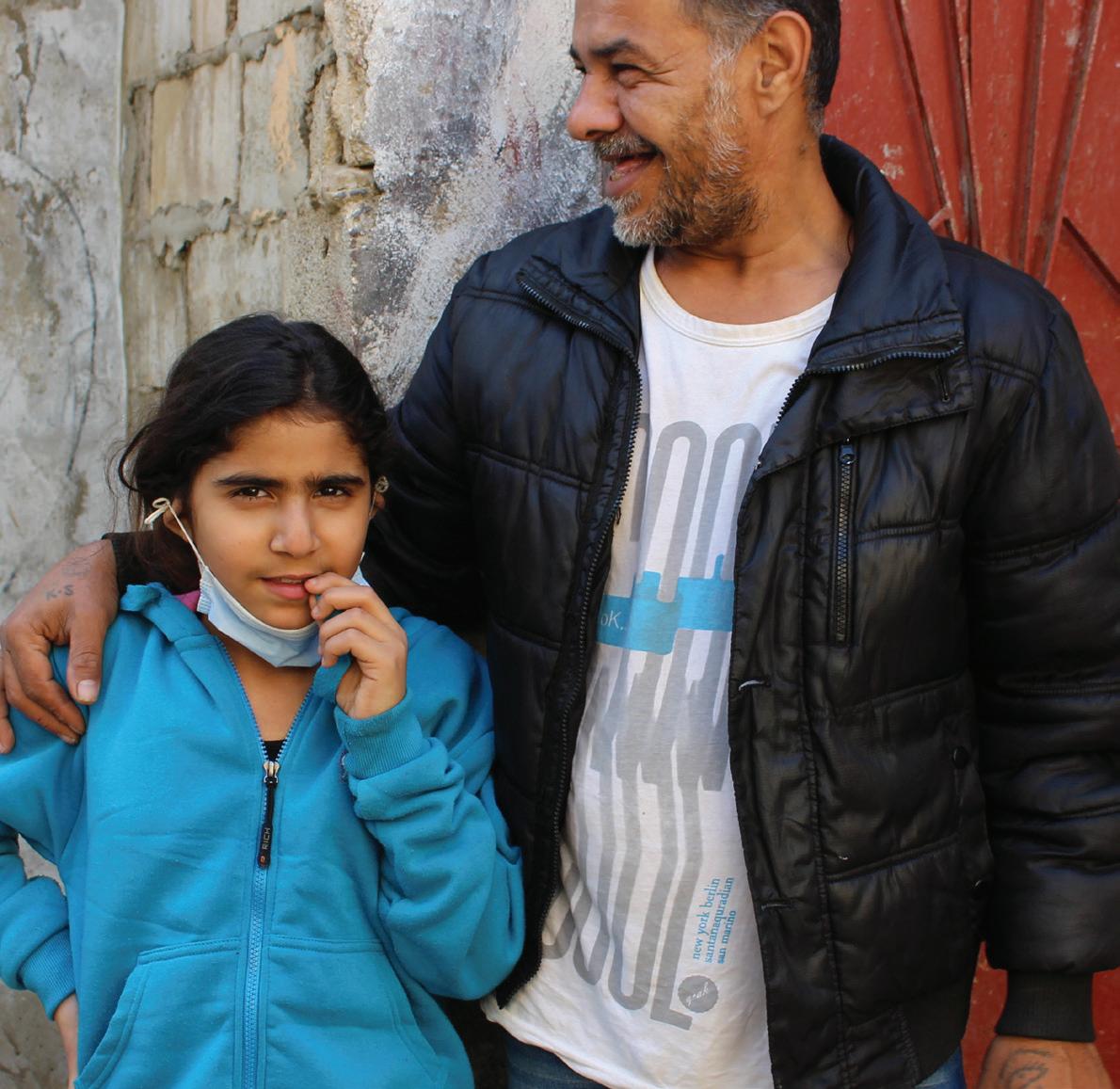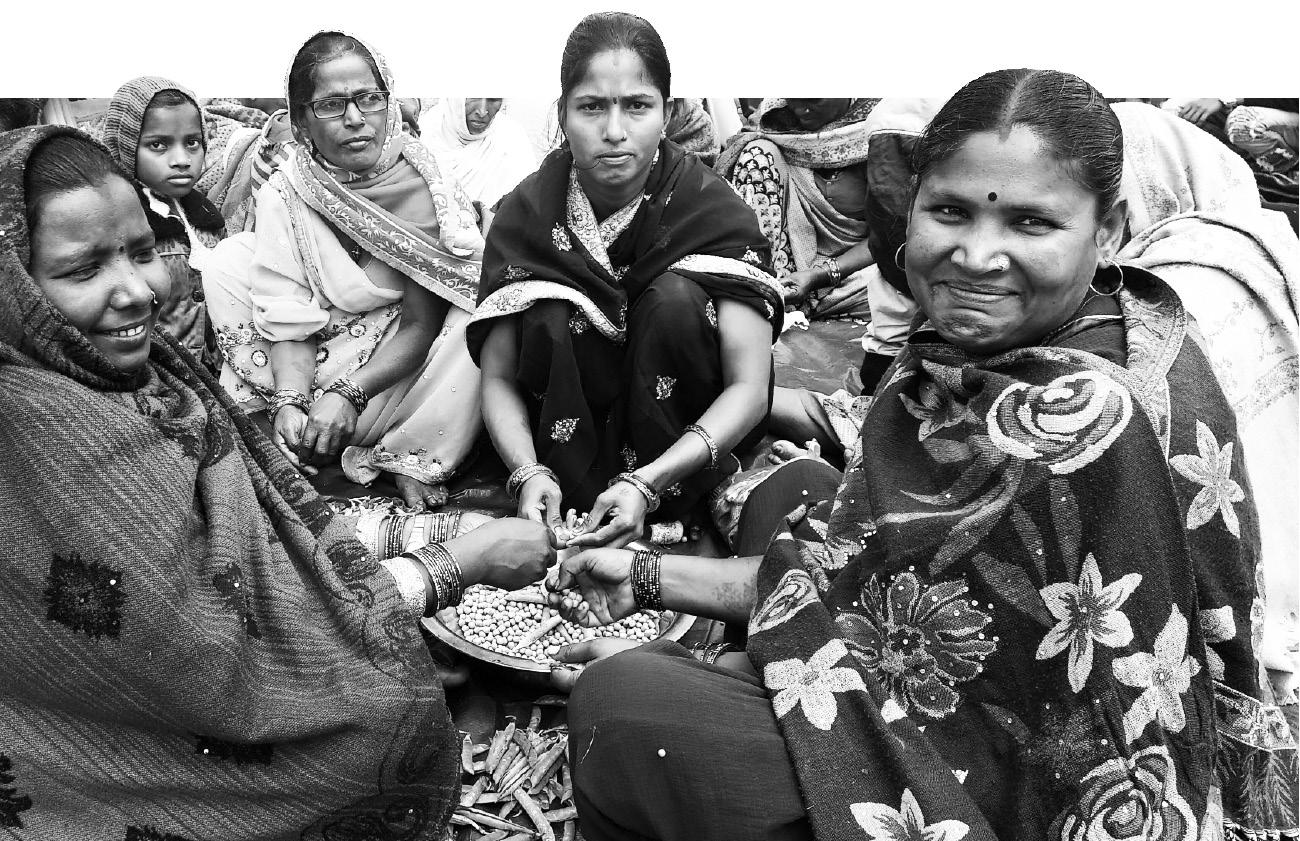
3 minute read
THE POWER OF A PASSPORT


Advertisement

How basic IDs can make—or break—your life
By Chantelle Mayo
When Tish Maier, Baptist World Aid’s Campaigns Coordinator, and her husband lost their passports on their honeymoon, it was scary—for a moment.
‘Walking out of the airport in Greece, I realised my hands were empty,’ Tish said. ‘Our passports were somewhere inside. Fortunately, the Australian embassy organised replacement emergency passports within a week.’
Tish quickly found out the privilege Australians have as holders of the seventh most powerful passport in the world. Out of 112 countries whose passports are ranked yearly*, our seventh-place status means we can travel to 185 countries without visas, free from concerns that our nationality will set off alarm bells.
It’s not just our passports that make us privileged. Australians can easily obtain documents often taken for granted: birth certificates, driver licences, Medicare cards, bank statements. Each business day, in fact, 7,000 passports are processed for Australians who have such identification. These documents open doors for health care, aged care, education and of course, travel.
But not everyone has access to such documents. Countries where we partner–Lebanon, Cambodia, Bangladesh, Nepal–rank in the bottom ten of 112 countries in
terms of passport opportunities, which means our local Partners are only able to travel to 41 countries or less without a visa.
‘Our passports allow us to enter different cultures, to work with Partners without jumping through hoops they might have to when crossing borders,’ said Fiona Smith, Director of International Programs. ‘Travel for us is a privilege because we have Australian passports as well as the necessary documents to get them.’
And sometimes a basic document can make all the difference in a child’s life. For instance, children in Nepal need a birth certificate to enrol in school, which many in vulnerable communities don’t always have. With support from our Partners, though, seventy new Child Partners in our Child and Youth Clubs there received birth certificates from their respective ward offices last year. The impact in the community is great as others are encouraged to register with their government office to receive identity documentation, crucial steps to employment or health care.
But obtaining legal residency documents isn’t always easy, especially for displaced families like Samer’s (pictured below). Samer’s parents fled Syria before he was born, settling in Beirut, Lebanon. Now an adult with children of his own, Samer identifies as Lebanese but is officially ‘stateless’, which means he has no country in which he is a citizen.
Consequently, he has no passport, and no right to acquire basic identity documents that allow him to work or give his children access to healthcare or education. He cannot travel, own property, inherit, or vote, because he cannot confirm his identity with documentation. Though he was born in Lebanon, he was not awarded nationality, so even his basic wants seem impossible.

Without documentation, refugees face increased risk of arrest or fine, making it more difficult to find work or send their children to school. If they do have documentation, Syrian refugees in Lebanon are restricted to three job sectors, construction, agriculture and cleaning.
‘Sometimes, I look at my home and I find emptiness,’ Samer said. ‘If I could only have water, a washing machine, good light, a closet. I would feel more like I have a home.’
Samer’s stateless status is not uncommon in Lebanon or other parts of the world. Thankfully, our Christian Partner in Lebanon helps families like Samer’s attain documentation so they can access essential services: education, healthcare, and critically, birth certificates for children to look forward to a future with opportunities. Last year, our Partners helped over 250 people secure identification documents.
‘I couldn’t provide my children with birth certificates because of my status, but with the Partners’ help, we are working on a birth certificate for my daughter,’ Samer said. ‘I want her to grow up educated, and maybe work one day. I feel motivated just motivating her.’








